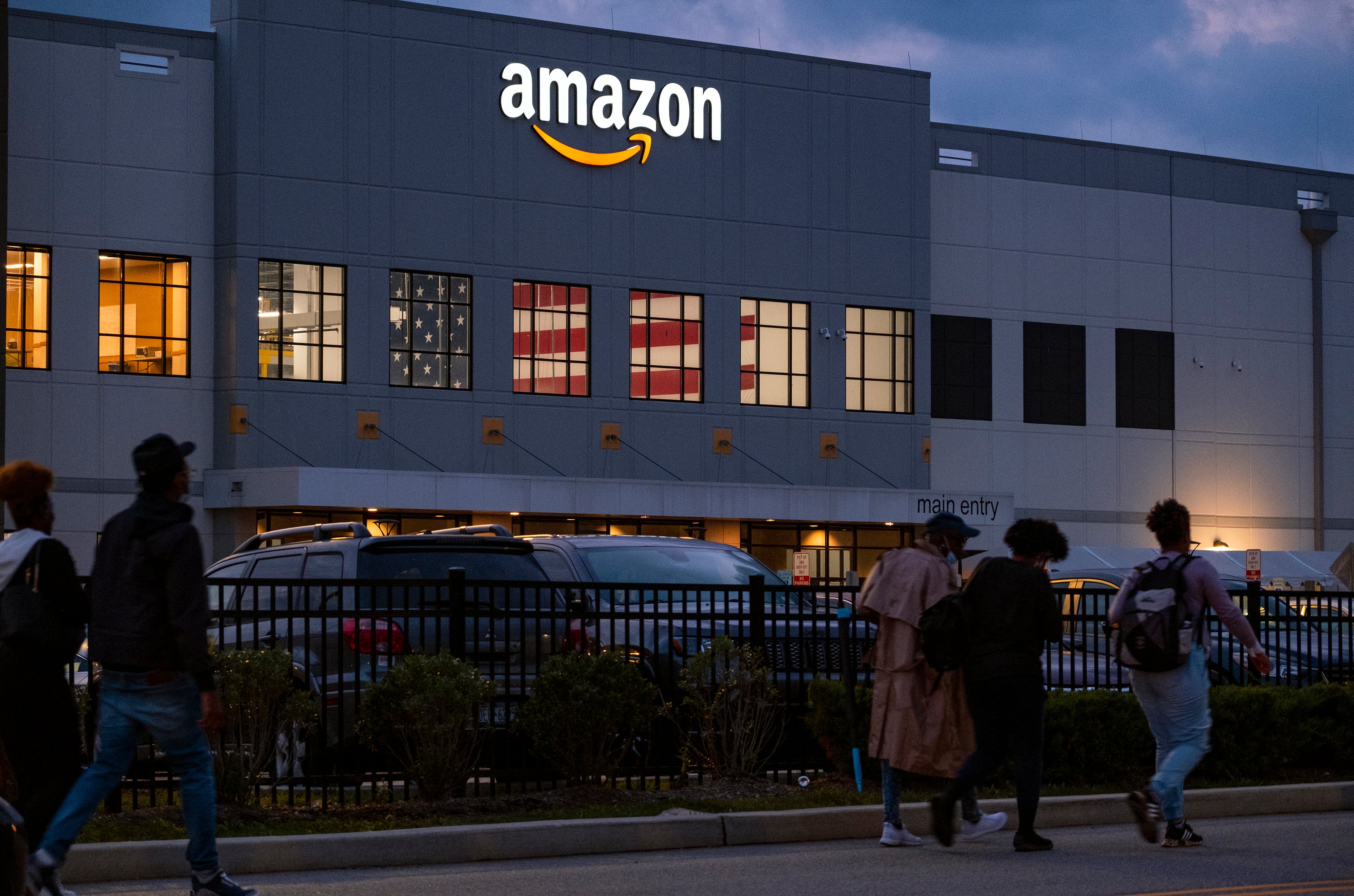NLRB denies Amazon's ask to close union hearing to public
A federal labor board has denied Amazon's request to bar the public from a hearing on the company’s bid to overturn a historic union win at one of its Staten Island, New York, warehouses

Your support helps us to tell the story
From reproductive rights to climate change to Big Tech, The Independent is on the ground when the story is developing. Whether it's investigating the financials of Elon Musk's pro-Trump PAC or producing our latest documentary, 'The A Word', which shines a light on the American women fighting for reproductive rights, we know how important it is to parse out the facts from the messaging.
At such a critical moment in US history, we need reporters on the ground. Your donation allows us to keep sending journalists to speak to both sides of the story.
The Independent is trusted by Americans across the entire political spectrum. And unlike many other quality news outlets, we choose not to lock Americans out of our reporting and analysis with paywalls. We believe quality journalism should be available to everyone, paid for by those who can afford it.
Your support makes all the difference.A federal labor board has denied Amazon's request to bar the public from a hearing on the company's bid to overturn a historic union win at one of its Staten Island, New York, warehouses.
Hearings by the National Labor Relations Board are typically held in person and open to the public. But the Seattle-based company filed a motion Tuesday arguing the agency should make the hearing on the Staten Island union vote private because it will be held over Zoom.
Amazon argued that a Zoom hearing makes difficult to know if witnesses who aren’t supposed to observe the hearing are listening in, or whether the hearing is being recorded and shared with others, which the labor board prohibits. The hearing, which begins Monday, is expected to last several days.
On Thursday, Cornele Overstreet, a regional director with the NLRB field office who will oversee the hearing, denied the company’s request. He wrote in a filing that the company hasn’t “put forward any compelling reason” to depart from long-standing policy of holding public hearings.
“The Board’s hearings are not secret. Accordingly, preventing the public from viewing its important processes is not an option,” Overstreet wrote.
Amazon has pointed to “unprecedented national media coverage” as one of the reasons access to the hearing should be limited, arguing it makes it difficult to sequester witnesses.
But the fact that the union election “has garnered national and international attention from outside parties only further solidifies the importance of allowing public observation,” Overstreet wrote.
The e-commerce juggernaut has sought to overturn the union victory at one of its New York City warehouses since April, saying organizers with the nascent Amazon Labor Union and the Brooklyn office of the NLRB, which oversaw the election, acted in a way that tainted the results. The company says it wants to redo the election, but pro-union experts and labor organizers argue it’s a method to delay negotiations for a union contract.
Overstreet noted in his order that a hearing officer has issued instructions to not record the hearing.
He said he was satisfied that the hearing officer has implemented safeguards to maintain the integrity of the hearing, adding that “there exists no extraordinary circumstances to deviate from the Board’s longstanding policy of allowing public observation of the Board’s proceedings.”